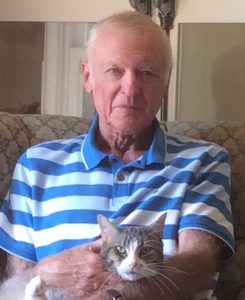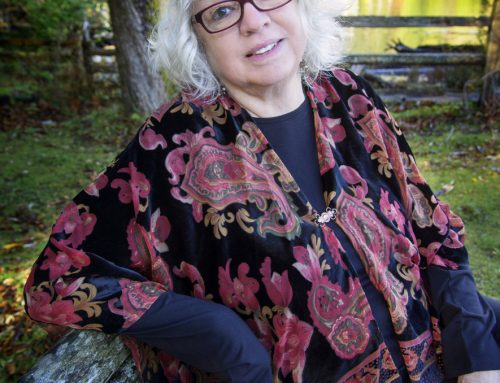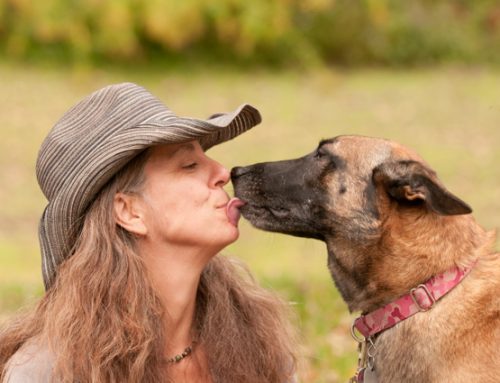by Gary Thomson
When Vera Kincaid and her husband Wallace first saw the wolves, she wanted to paint them whereas he was eager to shoot them.
They followed the ridge line about a hundred metres back from the farm house, partially concealed by basswood trees that stood bare against the autumn light. Five of them, Vera counted. Russet and grey, walking in single line. The artist’s brush in Vera’s hand trembled like a dry leaf. Wallace held his axe at waist height. He tensed himself. “Just keep an eye peeled. Next time I’ll have my .30-30 ready.”
“They won’t hurt a soul,” Vera said. “They’re only looking for a place to den up for the winter. How often have we heard them back of the hills? They’re not looking to hurt anybody.”
Wallace went back to trimming the windfallen ash trees. With each lopped branch, he directed a quick look towards the intruders. Suspicion and fear darkened his face.
This will spook him again, Vera thought. He’ll be pressing me to move into the city, same as always. She glanced towards the shadowy ridge. The wolves had disappeared. She continued in her painting, a cluster of Michaelmas daisies huddled into a V on the cedar rail fence.
So what if the farm was not a paying proposition. Never had been. But Vera’s hopes never wavered. With a fair measure of good luck and hard work they had enough to get by. On market days they took their garden produce into town where they sold crates of eggs and baskets of potatoes and fruit in season. Vera would offer several of her paintings set on a step ladder. On their return Wallace sorted the day’s earnings into columns of coin and a pile of notes. He recorded the amount in a worn ledger book, then he would look on the money with a solemn defeated expression. “I don’t know how it’ll get us through,” he’d say. “It’s always the same. Trickles in but goes out in a flood. We’re always short.”
It was true, she knew. The place was dogged with bad luck. The years swirled along in memories of sick animals, dry growing seasons, and patched-up equipment. Wallace studied his calloused hands. “It’s a slow death, Vera. Slogging day in, day out. Maybe we should sell the farm. I could get a decent job in the city. We could live a real life then.”
The notion panicked Vera, but she had long ago given up debating the matter with him. She would leave the house with her paints and easel, thankful for the solitude. She watched hawks soar over the rows of corn stubble, hunting for mice; or chipmunks skittering along drifts of leaves, their tails held high like tiny flags. Wallace liked to stay close to the barn, tinkering with the tractor or repairing loose siding along the implement shed. He took his resentment into himself where it grew and soured. He never smiled, never yielded. In a dark corner of his mind, Vera knew, he worked on a strategy to rid himself of the farm and move away.
In early November, a curious thing happened.
She set her easel in a sheltered corner of a meadow where the afternoon sun still had strength to warm her arms and face. Fronds of bordering sumac sparked in the slanting light. Nearby stood a massive granite erratic, lichen stained and etched with glacier cuts. Vera tried to capture the changing shades of crimson and lime.
Suddenly a white wolf walked into the clearing, perhaps forty feet away. It sat on its haunches and looked straight at her. A strange calm stopped Vera in mid brushstroke. Unafraid, she returned the wolf’s gaze. She studied the silvery ruff and the elegant sloping head. The wolf’s intense candle-flame eyes held her own in gentle enquiry.
“You are a beautiful creature,” Vera whispered. Have you lost your way with the others, or have you come to me by some strange design? The wolf lazily stretched himself full length and gazed on her painting gear. Surely, it’s a lucky sign, an omen, your presence here.
A week later the weather turned. Blue morning sky was shot through with bands of cloud which by early afternoon were massed into curtains of snow. Vera walked through pasty flakes to a neighbour’s house to deliver a dress pattern. On her return the wind had picked up. The snow cut against her cheeks like pellets of steel.
“This snow’ll give us easy tracking,” Wallace said. “Should bag our limit okay.” He looked beyond the kitchen window. Wedges of snow clung to tree limbs and bulged over the eaves. Next morning he departed in his pickup for two weeks of deer hunting with three of his friends.
Late that afternoon Vera walked along the lane to fetch the mail from the roadside box. Snow stretched over the fields like a washed-out pink muffler. In the stillness she imagined herself the only living creature in the landscape.
Then a movement on her right drew her attention. On a near rise stood the white wolf. He was watching her—alert, proud, attentive. Bands of sunlight broke through a hovering grey cloud, brushing coppery stripes along the wolf’s face and front legs; his bristling flanks gleamed like rippling water. His beauty choked Vera’s breath.
Abruptly the wolf turned and ran full out along the rise. His powerful strides lifted him over the light drifts, so that he seemed to be flying. His feet shot forth clots of snow.
He turned and ran back. His tail feathered behind him. When he reached near Vera he stutter stopped and tossed his head. His mouth gulped open, and he sneezed lightly. Vera was convinced she saw there an expression of affection.
Why are you laughing? she wondered. In sheer joy, is it, or the purity of the day and your own vitality?
Then the wolf ran into the woods. His appearance had left her tingling with awe. A blessing had come on her. The honour made her light headed. Vera walked back to the house. She was too absorbed in the thrill of the wolf to notice the government insignia on the topmost envelope of stacked mail.
Wallace greeted Vera with a weary smile on his return. His face was unshaven and sallow. He pointed to a dead buck in the pickup box. “I’ll hang him in the implement shed, try to dress him out early tomorrow. How’s about a cuppa coffee? That stuff we had tasted like iron filings.” The stench of woodsmoke on his jacket filled the kitchen. Vera saw in her mind the deer’s dark lifeless eyes and dollops of blood clinging to the wooden floor. She loathed Wallace for his eager cruelty.
That evening they sat in the living room, Wallace in his worn lounge chair and Vera in the corner of the sofa. Wallace was sorting and reading his gathered mail. Vera shared the same high lamp. She was mending a pillow case. Wallace read the letter with the government stamp on the envelope. He whistled softly, paused, and read it again.
“Here, what d’ya make of this?” He looked at Vera. His eyes sparked with enthusiasm. “The Ministry of Highways is buying land for a new access road into the city. They’re offering us two-hundred thousand for a portion of land at the north end of the property.” He waved the letter briskly. “We can sign off quick. Lawyers will be in touch.”
He clenched the letter to him. “This is it, Vera. Our ticket out. With that money, and sale of the house and farm, we can set up in town easy. No more grubbing and worrying about the next dollar.”
Vera absorbed this intrusion into her life with a rising terror. The darning needle in her hand gave no sensation to her fingers. “I’m not so sure it’s what we want, Wallace. After all, we do have a life here.”
“Of course, it’s what we want. I’ve talked and talked until I’m blue in the face. This is leftover land, no good for nothin’ but sapping your will to go on. We’ll die waiting for it to give a decent return.” He slapped the envelope against his thigh. “Besides, once the government eyes your place, it’s as good as gone. Like taxes, you can’t get around it.”
Vera thought of walking out to paint on autumn mornings when the sumac was on fire. She saw her white wolf following a secret trail in the woods, soft leaf shadows rippling over his back. “Let’s think about it for a while? These things always take a long time. The planning process may change in the meantime.”
“No use thinkin’ on misery and hard times.” Wallace walked away into the kitchen.
Vera clenched her darning needle until her fingers ached. The colours of the pillow case misted before her eyes.
Vera drifted in a grey void for the next several weeks. She had to force herself to eat, and her conversations with Wallace were curt and flat.
One evening she heard the wolves calling from the darkness back of the house. She went out onto the porch. The sharp baying and answering cries drove away her gloom and loneliness. Wallace came out and stood beside her. “They’re getting bolder all the time. Coupla well-aimed slugs would set them right.”
By late February preliminary cutting crews and heavy trucks belching diesel smoke were lumbering along the laneway. The rumbling of machinery and rattling chainsaws from the distant work site brought Vera pounding headaches.
One day Wallace returned from their lawyer’s office in town. He extended to Vera a crinkled envelope. “Government payment,” he said. “Cash. A truckload of it. They’ll open the vaults when it’s not their own.”
“Do you know what you’re selling?” Her voice sounded as a whisper.
“It’s development, Vera. So what if there’s a ribbon of highway to replace prickly ash and windfall?”
“A long asphalt noose, killing a part of us.”
“Try to look ahead, Vera. Look ahead a few years and ask yourself what good is it to be mired in unpaid bills and old vehicles, with no money to splash on what suits your fancy. Try that, why don’t you?”
“I celebrate this place every day, Wallace. “The changing seasons. The quiet places.” She readied her cruelest cut; she wanted to hurt him for his betrayal of her self-worth. “I rejoice in the singing of those wolves, and I would die before leaving any one of them dripping blood over the shed floor.”
A haunted expression narrowed Wallace’s eyes. He stiffened. “Sometimes I think you have their wildness in you. I see you listen for their arrival, hear you talk to them.” He was quiet a moment, then softened. “You can open your own gallery in town. You could at least give it a try.”
She could only shake her head in defiance and quiet rage.
For the next month Vera moved in a deep silence. She had difficulty sleeping. Wallace told her in early March that the real estate people were interested in listing the property. “We’ll have it sold in no time.” A lightness was in his step.
“There won’t be any strangers trucking through my house, even if I have to stand at the front door.”
Wallace let the matter drop.
On a blustery April day Vera stood at the clothesline, hanging laundry. Driving clouds speckled the sun. A biting wind scarred her bare hands. She walked along the line, fastening a flapping sheet with wooden pegs. She looked up at the gaunt hills.
The white wolf was walking along the fence line, heading in her direction. Once it stopped to sniff the air and scrutinize the cloud shadows. His appearance startled Vera. His fur was matted and dull; bits of dry leaves clung to the underside of his tail. His gait was slow and measured. He’s injured and unable to hunt; he’s starving. Vera made a strange sound in her anguish.
Wallace came out of the house, carrying his deer rifle in the crook of his left arm. “I’ve been watching you from inside, both of you. I knew he’d come back. Just bide my time, that’s all.”
Vera’s legs and arms stiffened. She wanted to shout a warning to the wolf, but her mouth was clamped and dry. She searched Wallace’s face to measure the depth of his hatred. His eyes were hard and hostile. “These animals got some sort of spell on you, don’t they? Maybe you’ll see reason with them gone.”
He raised the rifle and snugged the stock against his stubbled cheek.
Vera looked at the wolf. The light playing about his shoulders made him look a spectral figure, harsh and accusing. In her terror she saw the wolf as the ghost of all the animals that her husband had killed on his hunting trips, all the displaced forest creatures that fled their nests and burrows and stump hollows before the whining carnage of chainsaw and bulldozer.
She gripped the rifle barrel near the front sight. “You musn’t shoot him.”
Wallace looked at her, slowed by her resistance. “I have to. It’s him is keeping you here.”
She eased the gun barrel downward. “I’ll go.”
His dark eyes probed at her.
She wanted to scream at him, but her words came in a dry rustle. “Put the gun away. I’ll move into town.”
Wallace looked at the wolf, sitting and watching now. He lowered the rifle. “It’s for the best. You’ll see. It’s the best thing—for both of us.”
She wanted to walk through the grass towards the wolf, embrace him, and offer food and warmth. It was a terrible cruelty to love his wildness and beauty, and suddenly have those glories torn from her.
Vera tried to pull into her mind a place of refuge. Perhaps in the city she would find a park where she could paint the common beauties: wading herons along the waterfront or a flotilla of ducklings paddling gravely behind their mother. She wondered if together she and Wallace would be free from the recurring vileness of blood on the shed floor.
The white wolf vanished in a nearby thicket. Vera walked to the house, leaving her husband standing like a statue. Tonight she prayed the wolves, for one last time, would offer their mournful cries from the woods and melt the icy grip that wrapped around her heart.
September 2018

 Gary Thomson is retired in Belleville, Ontario. In his rec moments he blows Satchmo’s and Beatles tunes on his Hohner harmonica. This is his second appearance in AgnesandTrue.com
Gary Thomson is retired in Belleville, Ontario. In his rec moments he blows Satchmo’s and Beatles tunes on his Hohner harmonica. This is his second appearance in AgnesandTrue.com




